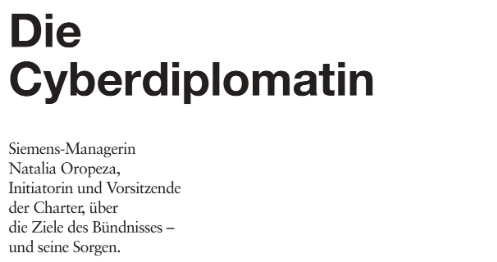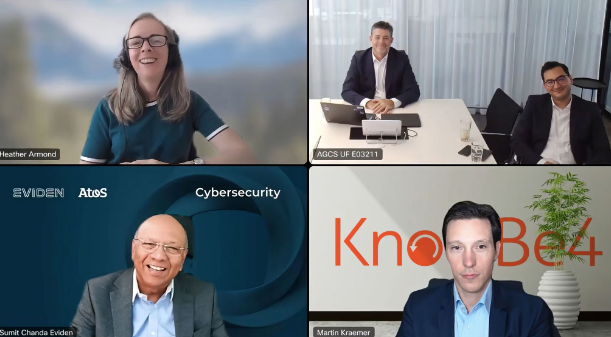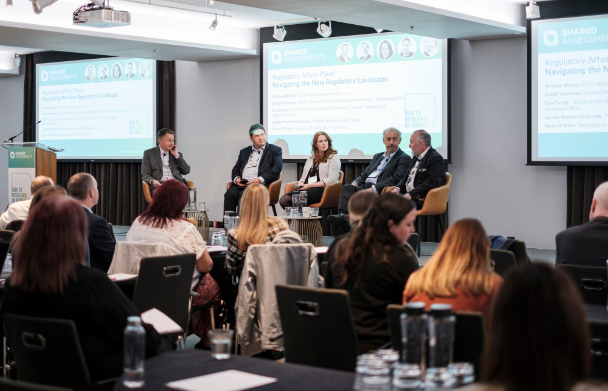To increase the overall level of security, security should be “built in” and considered from the very beginning. Therefore, the Charter of Trust defined “Security by Default” as one of its ten key principles.
By Sudhir Ethiraj, Global Lead, Cyber Security Strategy & Charter of Trust, TÜV SÜD
With the exponential growth of digitization in our everyday lives, there is also a potential widening of the attack surface. This fuels up the need to consider the principle of “Security by Design” or “Security by Default”. In other words: To increase the security level, security should be “built in” and considered from the very beginning.
The Charter of Trust defined Security by Default as one of its ten key principles. The objective: To adopt the highest appropriate level of security and data protection and ensure that it is preconfigured into the design of products, functionalities, processes, technologies, operations, architectures, and business models. It involves taking security into account right from the design phase. This helps avoid potential vulnerabilities, cyber risks and the costs associated with those risks.
Security by Default – end to end view
The principle should encompass more than just a product. It should include the processes behind the underlying architectures and the operations that enable the processes. This helps incorporate security aspects right from the outset considering a broad systemic view rather than having a narrow focus in scope. This could range from anywhere between enabling basic security trainings for the employees of an organization to following secure development principles to having a proper cyber risk management in place.
A collective responsibility
The concept of security by default also demands an immense amount of commitment from various stakeholders. It is therefore a collective responsibility of multiple stakeholders ranging from product managers to experts who are responsible for internal cyber security of an organization and to normal employees who need a basic amount of cyber security awareness. This collective responsibility must be anchored at the top of an organization. This is demonstrated very well with the work done at the Charter of Trust where we have companies across industries join hands to define what they see and perceive as necessary yardsticks to achieve Security by Default.
Addressing harmonization
We also live in a world, where standards and laws are currently being developed to address this. Within the Charter principle of “Security by Default”, we also look at the global standards and best practices which have been written from sometimes very different yet good perspectives and try to harmonize them by creation of the so-called “baseline cyber security requirements”. These are then aimed to enhance the Cyber Security stance of organizations who are currently starting out to ensure cyber security.
Ensuring Security by Default – Verification
These requirements also need to be verifiable in order to make sure that regular monitoring and audit processes can take place to measure the success of adoption and compliance to these requirements. It is not just enough to put down requirements, but it is equally important to follow them.
The current state of play, proves very often that the very basic pieces of the puzzle are still missing when it comes to security. This has been proven time and again, especially in connection to the recent attacks on hospitals and PPE manufacturers during the COVID crisis. Lack of basic security policies in place can have massive repercussions. These repercussions go beyond just the organizations being targeted and sometimes can have an impact at a global level.
Therefore, ensuring security by default from a systemic perspective is a great opportunity to get started in security and enabling organizations to tackle any sort of security challenges that may arise and help manage the security risks in the most effective manner.
Learn more about the Charter of Trust Principle 3 Baseline Requirements for products, functionalities and technologies here.


You may also like

Chairwoman Natalia Oropeza in Brandeins Magazine
In an interview with Dorit Kowitz, Natalia dives deep into the pressing issues facing the cybersecurity landscape, explaining how the Charter of Trust bundles the expertise of different businesses across several regions to stay resilient in the face of evolving threats. As Natalia Oropeza says: "We all win if cybercrime doesn’t win."
Here are three key insights from her interview:
🔑 Collaboration is essential: No single organization can tackle cyber threats alone. The Charter of Trust is a prime example that businesses nowadays are more transparent when it comes to attacks and that sharing information in this field can be beneficial.
🔑 Addressing the digital skills gap: The Charter of Trust is working to address the global shortage of cybersecurity professionals by encouraging diversity and actively promoting opportunities for women to join the field.
🔑 Unified regulations: Harmonizing global cybersecurity standards will reduce vulnerabilities, helping businesses and governments combat threats more effectively.
The full interview is available here: https://lnkd.in/gRm6ZDGC


Cybersecurity Awareness Month
The complexity and urgency of this topic gathered a lot of interest, with 600+ attendees throughout the whole panel, which was composed of Jon-Paul Jones, COO at AZ Commercial, Firas Ben Hassan, GenAI expert & Manager of AllianzGPT at AZ Technology, Dr. Martin J. Krämer, External Security Awareness Advocate at KnowBe4, and Dr Sumit Chanda, Global CISO at Eviden & Chair of the Global External Engagement Working Group at the Charter of Trust.
We are pleased to see Dr. Sumit Chanda from Eviden bringing in his unique CISO insight on what these emerging technologies mean in day-to-day cybersecurity practices and bringing in the Charter of Trust perspective on this topic as well.
Thank you, Ervin Cihan and Haydn Griffiths for inviting other CoT Partners and for the great initiatives that Allianz is putting together within this year’s Security Awareness Month. And special thanks to Heather Armond for the great moderation.


UK/EU Summit - “Risk to Resilience”
💡Under the theme “Risk to Resilience” the first event of this series was held in London and brought together professionals from different industries and regions. Detlef participated in the panel about the complex regulatory landscape and emphasized that new legislation like the EU AI Act, DORA and Hashtag#NIS2 continue to push the standard of care on cybersecurity and other risks.
Thanks to Shared Assessments for organizing such an amazing event and inviting the Charter of Trust to participate in this high-class panel alongside Andrew Moyad, CEO at Shared Assessments.



